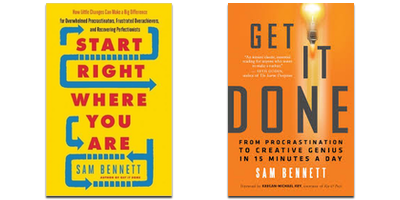
A PRAYER FOR THE CAPABLE
And as you stand there
On time and
Appropriately clad for the event
With a high-fiber bar in your bag
And extra pens
Let us take this moment to applaud you.
You, the prepared.
You, the accomplished.
You, the bills-paid-on-time and the-taxes-done-in-March.
You, who always returns the shopping cart.
You, who never throws a tantrum.
While the moody, the irresponsible, the near-hysterical and the rude seem to get
All the attention
Let us now praise you.
Just because everyone always expects you
To do well
Does not make it any less remarkable
That you always do so well.
So thank you.
For picking up the slack
For not imposing
For being so kind
And mannerly
And attending to all those pesky details.
Thank you for your consideration
Your generosity
For always remembering and never forgetting:
That a job well done is its own reward
That the opportunity to help someone else is a gift
That the complainers, the cry-babies, the drama queens, the never-use-a-turn-signals, the forgetful, the self-involved, the choleric, the phlegmatic and the your-rules-don’t-apply-to-me-types
Need you to rebel against in order to look like rebels.
You provide the lines – for without the lines, what would they color outside of?
So take a minute
To pat yourself on the back
And say, “Job well done.”
And as you consider someday
Showing up stoned
Or unprepared
Or not at all
And as you imagine someday being imperious
Or demanding
Or the one with the temper
Hear the unspoken “thank you” from a
Grateful nation that is a
Better, smarter, calmer, easier, friendlier and more organized place
Thanks to you
And your dogged diligence.
You are beautiful.
You are precious to us.
You are the hand that calms the water, the wheel that never squeaks, the one we all rely on
And while you probably would have remembered to send a thank-you note,
We forgot.
And just because everyone always expects you
To do well
Does not make it any less remarkable
That you always do so well.
And I would tell you to take the afternoon for yourself
Or sleep in tomorrow
But I’m pretty sure you already have plans.
So just take this very moment right now
To appreciate you
And all that you have done and done well
Even by your own high standards.
And remember:
You are beautiful.
And just because everyone always expects you to
Do well
Does not make it any less amazing, delightful or delicious that
You always do so well.
© Samantha Bennett 2014

And as you stand there
Your eyes brimming with tears because you just saw
That commercial
And you are wondering why you even try to maintain your composure when
Everything you feel shows on your face
And your heart is permanently attached to
Your sleeve
Let us now praise you.
You, as innocent as that tattered toy you’ll never get rid of.
You, as vulnerable as the dawn (though everyone thinks you’re as brave as high noon).
You, with the soul that’s older and deeper than the sea.
You are beautiful.
You are the one we turn to when we need a
Shoulder to cry on
A hand to hold
Or just some fervent praise to make us feel good about ourselves.
You are our biggest fan.
And while you sometimes get trapped by that voice in your head that says
You fool
You fool
You fool
Why can’t you just for once
Go for the money
Let it slide
Not take it all so personally
(Although, how else a person would take it is a bit of a mystery…)
And why can’t you learn to just
Suit up and show up and shut up?
But no.
Your feelings are how you know you’re alive.
And while the family you were born into may still call you:
Sensitive, too sensitive, waaaaaay too sensitive, weird, artsy, melodramatic, a big ol’ drama queen, psychic, unique, odd, old-fashioned, eccentric, misguided, special, tolerant of ambiguity, optimistic, viciously self-critical, expressive, inventive, pollyanna, misunderstood, different, deluded, ambitious, contrary, talkative, awake, gifted, diverse, scary, intense, playful, iconoclastic, independent, freaky, unrealistic or just plain crazy
You know better than to expect them to understand you.
And you have made your own
Family of friends and orphans and strays and
You would do anything for them
And have, come to think of it.
But you don’t keep score like that. Which is a good thing,
Because you would never come out even.
You overshare, overcompensate, overthink, overdo, overanalyze, overtalk and
Overwork – a word for which the past tense is: overwrought.
You, my beautiful love, are overwrought.
And we don’t want you any other way.
For it is you who looks every single homeless person in the eye.
You who can recall the name, birthdate and astrological sign of every person we’ve ever dated.
You, who rescues the animals,
Sings to the children,
Spots our moment of despair from across the room and rushes in, heedless, to hug and hold us when we never even knew what hit us.
But you knew.
You may not believe in psychic ability, but it does seem pretty freaking obvious to you pretty much exactly what is going on with pretty much everybody pretty much all of the time.
And you can’t believe we can’t see it, too.
And all that discernment and intuition and, yes, sensitivity, makes
Going to parties a horror show and
Getting dressed for parties even worse –
And not being invited to parties the very worst thing of all.
But remember about your need for solitude.
And remember the joy you feel when you lose yourself in your work, your art, your craft.
And remember, please, to take good care of your tender self and not watch scary movies like the evening news and not hang around negative-toxic-energy-vampire-people and remember to move your seductive body and
Lift your eyes to the sky because no one knows like you that:
All This Has Come To Pass.
And while we all wish you wouldn’t drink so much,
We understand why you do.
And we are so grateful to you.
You are so beautiful.
And we know that it is not that
You are over-sensitive,
It’s just that
The rest of us are under-sensitive.

There is only one thing that ever changed the world: A NEW STORY.
So if you want to change the world, you must begin to tell a new story.
Stop repeating the stories created by the info-advert-tain-u-ment industry.
Instead:
Look closely and notice something remarkable about the world.
Be still.
Listen.
Ask a question you’ve never thought of before.
Tell a new story.
Stop repeating your old stories about yourself and what you are and are not capable of.
Instead:
Look closely at your life and notice something unusual.
Be still. Do not rush to judgment.
Listen.
Ask yourself something about you that no one has ever asked before.
Tell a new story.
Stop rehearsing stories about the future.
Instead:
Look closely and notice that which is the same as it ever was. (#sameasiteverwas)
Be still.
Listen to the rhythm of history as it meets a new beat.
Tell a new story.
I talk to people every day who say,
“I’m not sure what to write/create…”
And I say,
“Of course you don’t.
You haven’t done it yet.”
Luckily, it’s not too late.
And the world is desperate for your story.
Please –
Tell us a new story.

We love the story of life as a road. (Success is a ladder. Time is ever marching forward.)
But we know it’s not true.
We are on shifting sands, sliding forward and backward and sideways and diagonally in our thinking, our feeling, our learning and our lives.
Time swirls about us endlessly; effortlessly sweeping us back to That Day in the Third Grade…That Picnic by the Lake…That Long and Horrible Night…no, certainly time is the most unreliable of all the unreliables.
If we think of our lives as being linear, we cheat ourselves out of the fullness of our experience.
Plus, it’s that foolish linear thinking that leads to self-immolating thoughts like, “I should be more successful by now” and “Look, that person is more successful than I am.”
We know these thoughts are lies, too, but if you only measure by the clock it is all too easy to slip those lies into your pocket and carry them around as part of your belief about yourself.
The more we learn about our art (our love), the less we know.
The longer we live on this earth, the more the years seem to pass in a day.
As our fortunes rise and fall, the more we recognize that money and status are no more accurate a marker of success than a new crop of tomatoes or a big hug from an eight-year old.
Today, challenge yourself to notice the ways in which your life is a gyre, moving in many looping directions all at once. And how that is good and meet.
The world needs your art.






